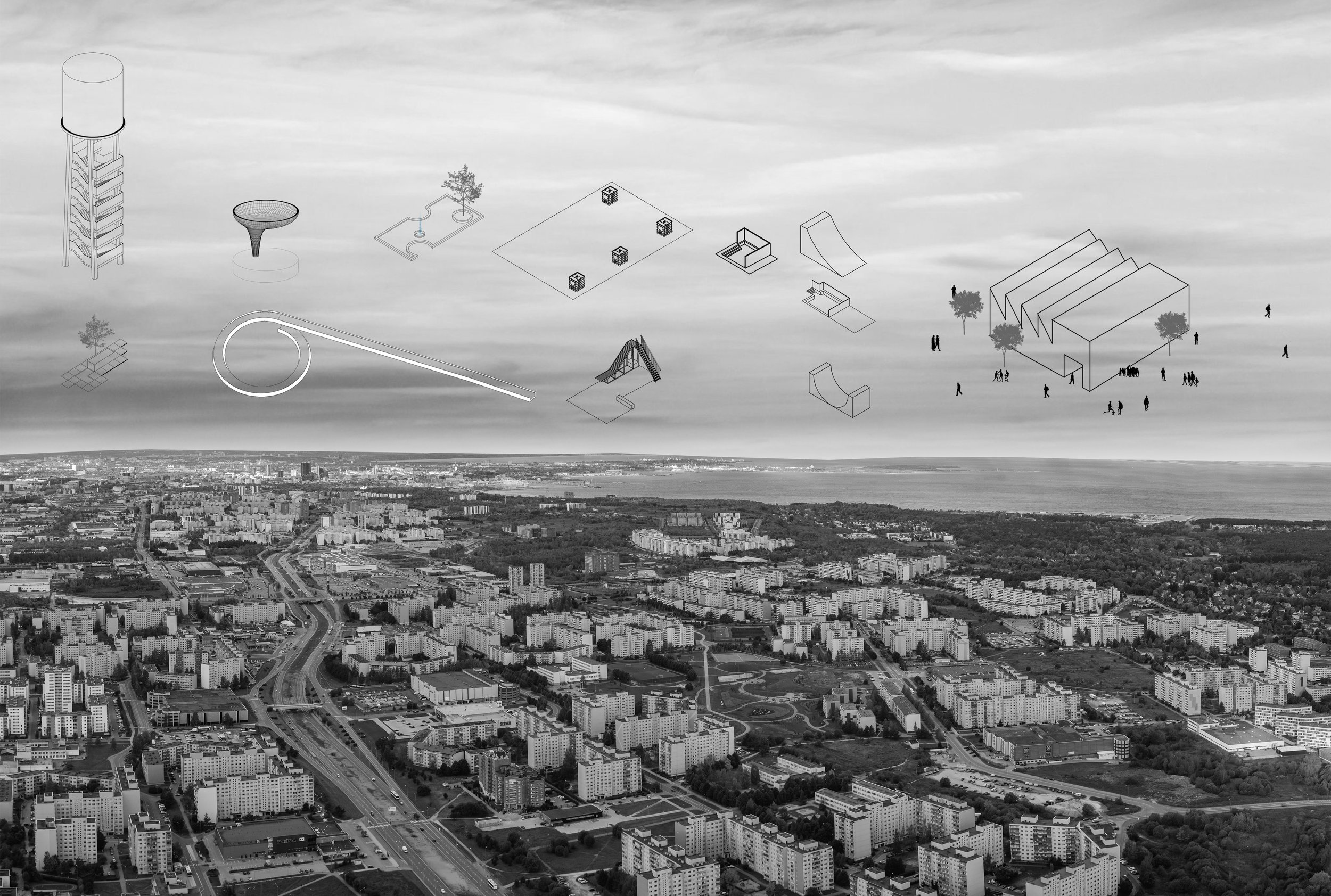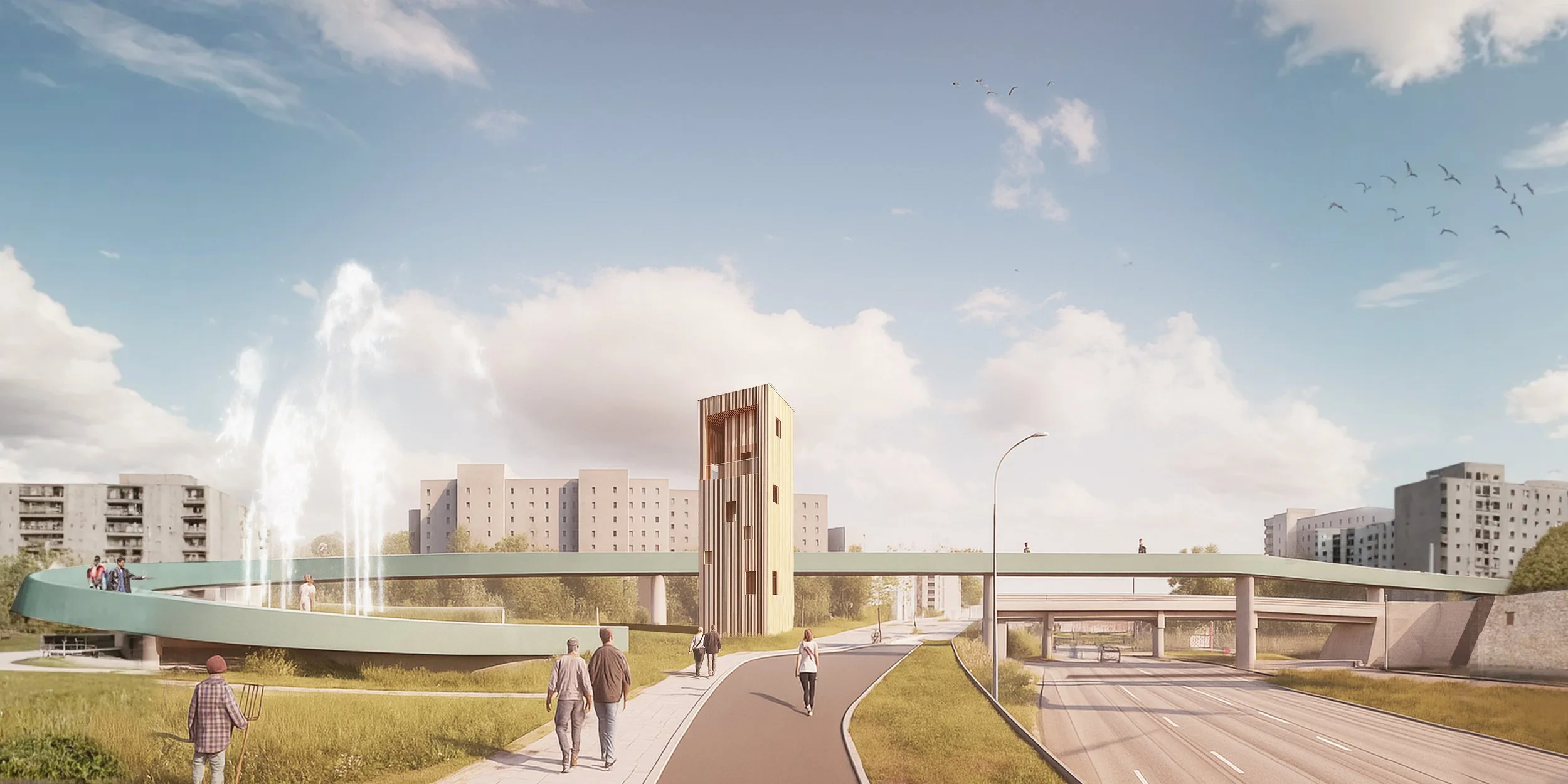‘Urban Loop’ _ An exemplary pilot mikrorayon
Tallinn Biennale titled “Edible; Or, The Architecture of Metabolism” challenges conventional architecture by treating buildings and cities as metabolic systems that produce, digest and decompose. It uses “food” both literally and metaphorically to explore local production, resource self-sufficiency, and circular systems that replace linear “make-use-dispose” models.
Amid global crises of climate, health and inequality, the theme invites designers to rethink where our food comes from, how built environments might become productive, and how architecture can integrate material up-cycling, interspecies alliances, and localized resource cycles at all scales.
‘Urban Loop’ is a series of small and medium-scale interventions based on the concept of urban acupuncture. The project is using Laagna mikrorayon as a test bed but could later be scaled up to all the 11 mikrorayons of Tallinn. Taking into consideration both the history and the contemporary issues of the mikrorayon the proposal seeks to address sevral key issues such as :
- the mono-functionality of the blocks and the lack of cultural and commercial activities,
- the non-utilised open spaces,
- the overall lack of connectivity and permeability within the area and
- the lack of a strong place identity.
Furthermore, ‘Urban Loop’ would introduce an alternative food and energy management strategy in order to provide alternative solutions that would help mitigate energy and climate crisis while raising social awareness.
The proposal is developed as a network of pavilions, buildings and infrastructural elements of a distinctive design language. This ecosystem is initially conceived as a toolkit that could easily be adjusted in the different spatial and social characteristics of the area. The toolkit elements vary in shape, size and use in order to address a number of needs from social interaction and play to food cultivation, recycling and irrigation. Among others the toolkit includes playgrounds, a pedestrian bridge, aquaponic farms, wetlands, water collectors, a waste water treatment plant, a compost plant, urban farms, an open market, and a smart bus stop network.
Client
Competition
Year
2022
Project Team
D.Grozopoulos, E.Kasimati




